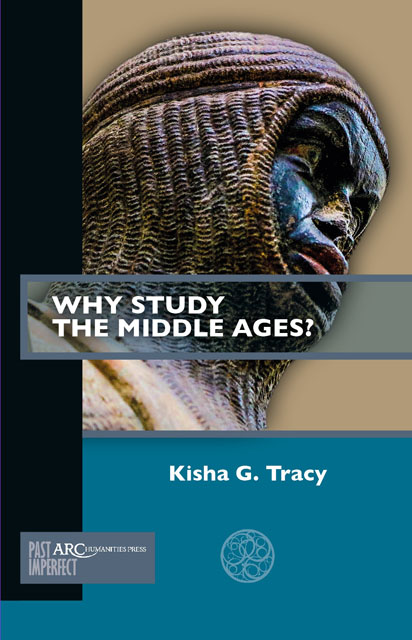Book contents
- Frontmatter
- Contents
- Introduction: The Middle Ages and the Liberal Arts
- Chapter 1 The Middle Ages and the Humanities
- Chapter 2 The Middle Ages and STEM
- Chapter 3 The Middle Ages and the Social Sciences
- Chapter 4 The Significance of Studying the Middle Ages
- Conclusion: The Connections among the Arts
- Further Reading
Chapter 1 - The Middle Ages and the Humanities
Published online by Cambridge University Press: 06 December 2022
- Frontmatter
- Contents
- Introduction: The Middle Ages and the Liberal Arts
- Chapter 1 The Middle Ages and the Humanities
- Chapter 2 The Middle Ages and STEM
- Chapter 3 The Middle Ages and the Social Sciences
- Chapter 4 The Significance of Studying the Middle Ages
- Conclusion: The Connections among the Arts
- Further Reading
Summary
I convinced myself that I hated medieval history for a long time, but it was literally just because I only learned about it in middle school and that education was all misconceptions.
Without studying human beings over the course of time, we risk failing to discover what it means to be human. Our modern experience is only one of many throughout the course of our existence. Studying what we know about our counterparts in the past, how they reacted to and understood their world, and what commonalities they share with us presents a method to understand what “humanness” is. David Lunt argues that the “application of reason to understanding the events of the past allows writers and readers of history to construct, to engage with, to accept, and to refute arguments.” If necessary, we can add “in the present” to the end of that statement. The Middle Ages marks the final premodern period, at least in Western civilization, and the precolonial period, and, thus, is ideally situated as a site for deep investigation into past humanness. It reaches simultaneously backward to previous civilizations and forward to future generations, uniting eras and highlighting (dis)continuities.
Humanities study is, according to Helen Small, “the meaning-making practices of human culture, past and present, focusing on interpretation and critical evaluation, primarily in terms of the individual response and with an ineliminable element of subjectivity.” The humanities in the United States today generally refers to the collective study of literature, history, philosophy, religion, writing, languages and linguistics, and the arts. Some of these disciplines map easily to the medieval trivium—grammar, logic, and rhetoric: languages and linguistics, philosophy, and writing—and to the quadrivium—music. Although a misnomer, the phrase “humanities” is often used as a substitute for the “liberal arts” more generally. Much—too much—of the recent energy in the humanities is focused on defenses in the face of a barrage of critiques concerning the value of their study. Why are the humanities important? We spend a lot of time trying to answer this question. This skepticism of the humanities in the United States is, according to Jerome Kagen, due to the American need for “intellectual work with pragmatic consequences.”
- Type
- Chapter
- Information
- Why Study the Middle Ages? , pp. 21 - 42Publisher: Amsterdam University PressPrint publication year: 2022



